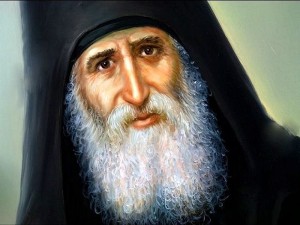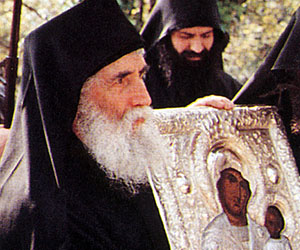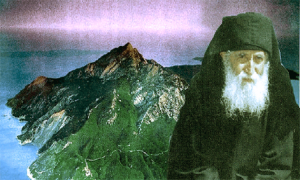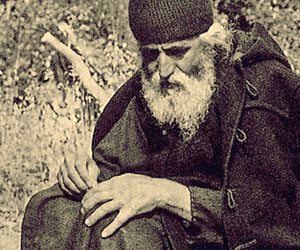Saint Paisios the Athonite teaches spiritual dignity and generous pride
22 April 2016The Elder often advised us to have spiritual dignity and generous pride. These were the virtues that distinguished him, too, as everybody knew who met him. I once went to visit him in his old kelli of the Precious Cross and after our chat I said goodbye to him, but he accompanied me for quite a way. As soon as I told him not to tire himself out and to go back to his kelli, he said goodbye and went back. If I hadn’t said anything he’d have gone with me as far as our representative’s house in Karyes.
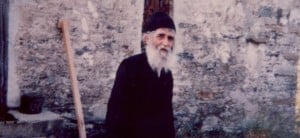
I should also say that he rarely showed his gift of foresight and never to show off, but only for the benefit of souls. Once a young monk visited him. The young man was having bad thoughts about his abbot, who refused to have a short jacket made for him. Before the monk said a word, the Elder said to him: ‘What are these thoughts you’re having about your abbot not giving you a jacket?’.
He used to comfort young monks when they were troubled by some weakness they had, such as jealousy, which he called faults of immaturity. Naturally, he told them to grow up and get over them.
Father Païsios was also outstanding as regards the highest of all the virtues – discrimination. He was able to help every soul to discover its true inclination and the direction given it by God, so that it could find its own tranquillity.
His love embraced the whole world. He helped so many people, particularly the young, to live a Christian life in the outside world and in a family.
When you talked to the Elder you felt you were in the arms of God.
It ought also to be stressed that Father Païsios was very sensitive to dogmatic issues. He once wrote to me that ‘Dogmas don’t enter the European Union’. In this he followed the path of all the holy Fathers, who believed and confessed that it was not only virtue but also the Orthodox faith that people needed to be saved.
His holy life was corroborated by his holy death. He accepted his painful illness as a gift from God and rejoiced at the thought that Christians living in the outside world, and who were suffering from the same illness, would find comfort in the fact that monks were also susceptible to it.
He had overcome any love of self. He wasn’t concerned about his own illness, but when he was on his bed of pain he continued to think about his fellow-sufferers. Even in the last days of his life he was interested in people’s problems. A God-fearing couple came to see him only a few days before he passed away. They had unmarried daughters and he told them: ‘I’m giving you a direct order to make sure that your daughters are properly set up’. Through his prayers, his command and desire came to pass.
May your memory be eternal, venerable Elder. We’re grateful for everything you’ve given us, for your consolation, and for your teaching, both through what you’ve told us and through the way you lived. Pray that we may follow your footsteps as you did those of Christ our Saviour.







